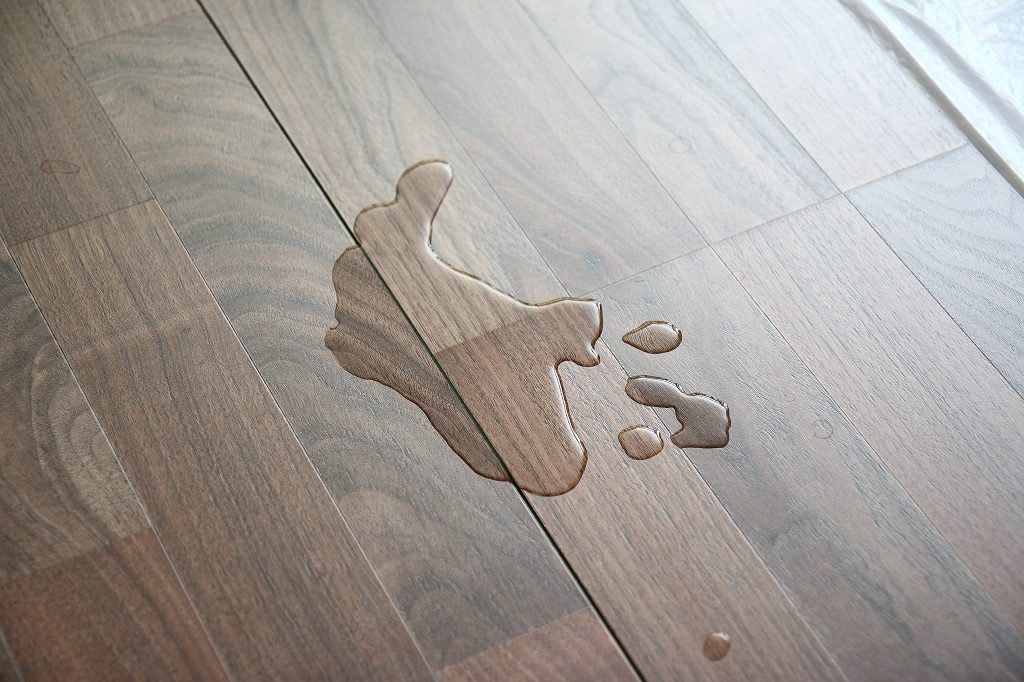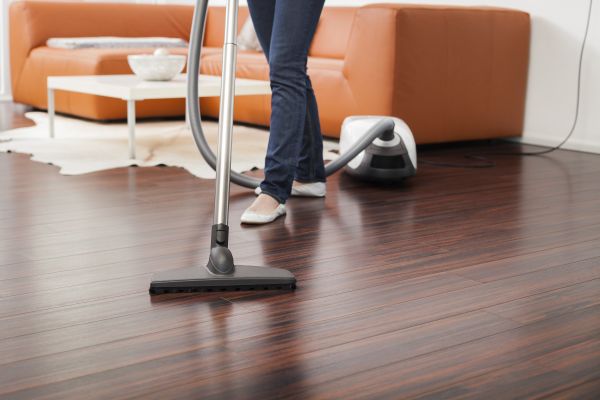
All homeowners who have hardwood floors need to know that they require not only special care and maintenance to look good and last long, but also protection against excessive humidity. Some steps should be taken prior the installation (like making sure if the damp proof membrane is needed) but too high humidity levels in the air or spills of any sort can cause serious damage to your already installed wooden floor if you fail to take preventive measures or don’t remove them fast enough.
STAGE 1 – Prevention
If you want to take care of your wooden floor, the first thing you should do is make sure that there are no leaks in your home and by all means prevent them. Hardwood floors are often damaged in such areas as bathroom or kitchen, due to the increased probability that a plumbing leak will occur there.

Moreover, those areas are more prone to spills and splashes as compared to other rooms in your home. Moreover, you should also check if there’s any risk related to leaks in the roof, windows or doors as well as cracks in the walls. Due to such defects rainwater or moisture can get into your home, causing damage to wooden floor and furniture. The next important thing you should definitely remember about when choosing a hardwood floor is monitoring humidity levels, as high humidity can slowly, yet seriously damage your hardwood flooring.
STAGE 2 – Protection
Protection is the second stage of preventing water damage to your floor. The methods we would recommend you to protect your floor include: oiling, lacquering or varnishing it, both after fitting and later on from time to time. These protective measures offer various levels of protection. Oiling is the least effective technique, while varnishing guarantees the best protection.
The choice of one of this method depends on the risk of moisture, water leaks or spills in the given area. Think it through carefully to pick the most suitable one for the given interior. However, no such method gives you 100% certainty that your floor is secure. Different things happen and all hardwood floors get damaged when exposed to excess moisture for too long – that’s why you should avoid it by all means.
Stage 3 – Everyday Maintenance
When it comes to day to day care and maintenance, you can also do something to protect your hardwood flooring against being damaged by water. Always remove any spills immediately after they occur. In this way, you’ll help the floor retain the protective properties of the finish and prevent the spill from getting deep into the planks.
Such an approach helps avoid water damage as well stains, which can sometimes be really hard to get rid of. And last but not least, remember to clean your floor on a regular basis with a damp cloth or mop.
Do not use excess water for cleaning, as it’s totally counterproductive and can damage your floor instead of keeping it in good condition. The next thing which is worth paying attention to is regular periodic re-application of oils or lacquers. Do it to protect your floor from the risk of water damage as well as to make it last longer and look good.
| Mon-Fri | 8:00AM – 5:00PM |
| Saturday | 10:00AM – 4:00PM |
| Sunday | 11:00AM – 3:00PM |





.svg)
.svg)